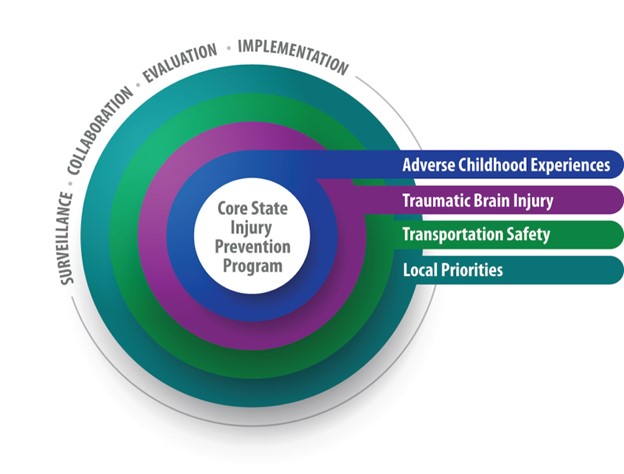Maryland’s Core State Injury Prevention Program (Core SIPP) supports state and local health department infrastructure, data, and partnerships to identify and respond to existing and emerging injury threats with data-driven public health actions. Core SIPP focuses strategic efforts on addressing transportation safety, traumatic brain injuries (TBI), and adverse childhood experiences (ACEs) through data-driven approaches and partnerships with state-affiliated organizations and local health departments.


